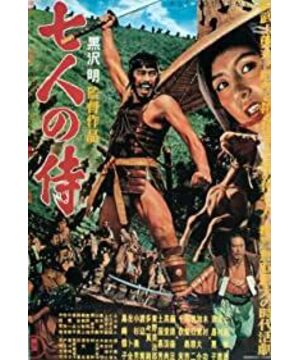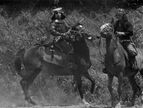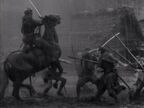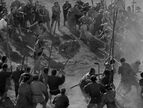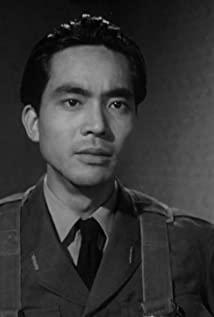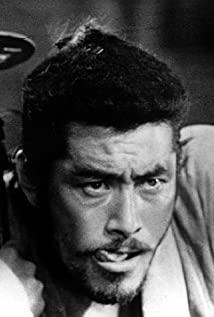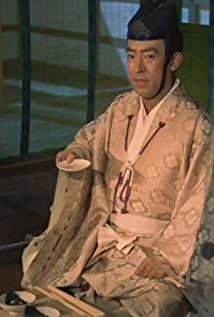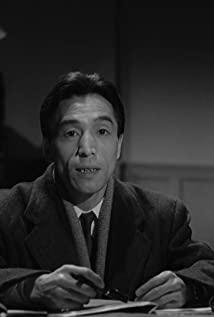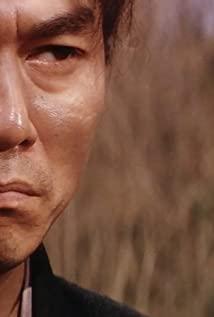Kurosawa is not only an excellent director, but also an excellent screenwriter. His famous films are written by him personally. The story is strong and fascinating, coupled with his strong narrative ability and philosophical art. Thinking, even more shows his film talent in this movie. His fascinating thing is that the film lasts for more than 3 hours, but it does not make the audience feel the length of it at all, but after the appreciation, there is a feeling of endless aftertaste, which makes people memorable.
The film ostensibly tells the story of a group of poor peasants who hired samurai to protect their rations during the Warring States Period in Japan. In essence, it is a deeper discussion of the living conditions of the Japanese samurai in the Warring States Period. As a class of Japan, most samurai possess kung fu, are chivalrous, righteous, arrogant and arrogant, and commit suicide without insulting the spirit of Bushido at every turn. Their behavior is extremely extreme. It is either admirable or perverted. From this point of view, it is Japan's tragic Bushido spirit that makes Japanese people stronger. As we all know, Japan is an island country, and its own resources are severely lacking. If it is not self-reliant, it will be difficult to solve the problem of food and clothing with the resources of foreign nations. The Japanese nation grew up in an environment of severe stress and depression, and the entire Dahe nation embodied this kind of thinking, which was also an important reason for the subsequent World War II.
Just like the name of the film, the film has created seven images of warriors with different personalities. Each character uses several unique shots or events to express their personality characteristics. The visionary Kanbingbei is young, naive, and easy. Emotional Katsushiro, Kikuchiyo, who was born as a farmer and eager to squeeze into the samurai class, Kuzo, who specializes in swordsmanship and specializes in art, is witty, Gorobei, enthusiastic and optimistic Heihachi, and Shichiroji, a calm and orderly assistant of Kanbei . Among them, Kanbei and Kikujiro are more successful in portraying the images. Kanbingwei is humble and wise, helpful, and has experienced the vicissitudes of life. He keeps saying that he has been defeated for most of his life. From the end of the story, he knows that what he thinks is "lost" in his consciousness is exactly what Kurosawa wants. It expresses the tragic fate of the samurai. The recruitment of the samurai through the Kanbing Guard can vividly illustrate the state of existence of the samurai at that time. They are willing to be the protector of the humble peasant class and eliminate hostile forces. This may be the sole purpose of the existence of the samurai class. Throughout the history of Japan, from the era of Japanese military exploits to the "World War II", they launched wars and supported their war ideas are all related to the samurai. In fact, only this class is on the front line to work for the country, or more precisely, for the sake of the country. The Bushido spirit worked hard. In the performance of Kanbingbei’s character and thoughts, the film uses a variety of artistic metaphoric shots that are rich in oriental philosophical charm to show him. His personal characteristics.
And Kikujiro runs through the entertainment part of the entire film, giving people gimmicks, whether it is from his arrogance, vulgar and trivial actions, or later pretending to be a bandit to grab a gun and imitating farmers’ drills, all of them are relaxing. This is completely different from the "Japanese-style" hysterical howling of the farmers at the beginning of the film because they are afraid of bandits and cannot eat. Although he is weird, funny, and rude, making the other seven people always afraid that he would cause trouble, but he played a very important role in communicating with farmers and fighting bandits. He was born as a peasant and lost his relatives since childhood. He can understand the peasants' difficulties (it tells the generation gap that farmers hid food and girls out of fear when the samurai first left), he worked very hard in the war, so that the samurai who fought with him could prove that he possessed The ability to be a samurai.
So from the point of view of the film, where is the tragedy of the samurai mainly manifested?
One is to die for the war, especially for the peasants who are inferior to him, especially after the victory, while they are still mourning their colleagues, the peasants are singing and celebrating their victory.
Second, from the perspective of the uniqueness of the samurai class, they only rely on their superb martial arts to be employed by Renjiren, but they themselves have no real destination. After the war, they lost their jobs. The end of the film is a good example. Kanbingwei tells of their tragic existence: the peasants were victorious, not them, but they were the ones who lost. There are only three left when leaving). There is also a contradiction in this. If the war continues, they can play their role, but they may die, and the end of the war indicates that they will lose their jobs. This contradiction prevents them from finding themselves.
In the innocent love between Katsushiro and Shino, it also showed that Shino’s father (farmer class) samurai helped him protect the food and did not develop gratitude or heroic worship for the samurai class. He was not a happy Gao Panba’s daughter Xu. Give it to him, but think that he pushed his daughter to the fire pit. In the end they passed by silently, which also puzzled the young and delicate samurai Katsushiro.
Kurosawa showed a profound metaphor through this movie: the samurai will certainly go to extinction because of their special living conditions. Since it was born, there has been a suicidal way of survival, and finally it has to return to the destination of suicide. Behind the film's theme of "helping others for pleasure" hides the greater theme of "failure" and "suicide", which is exactly the ending of the samurai in real behavior.
View more about Seven Samurai reviews


